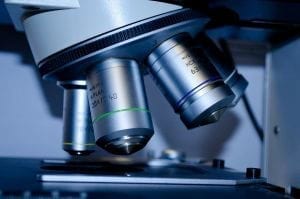Adenoid Cystic Carcinoma (ACC)
What is adenoid cystic carcinoma (ACC)?
Adenoid cystic carcinoma (ACC) is a rare form of glandular tissue cancer. It most commonly arises in the salivary glands of the head and neck, but it can also arise in the breast or uterus. The ACC tumors are characterized by a distinctive “nest” pattern that is filled with a mucous-like material. ACC has a history of slow growth, but it tends to be aggressively invasive and has a tendency to recur later at the site where it first developed.What causes adenoid cystic carcinoma (ACC)?
The cause of ACC is currently unknown, but it typically does not run in families. Genetic changes in the patient’s cancer cells may be caused by environmental exposures, though no specific risk factor has been identified as of yet. There is also evidence that ACC tumor cells are associated with too much of a protein called “myb,” and current research is underway.What are the symptoms of adenoid cystic carcinoma (ACC)?
The primary sign of ACC is the presence of a tumor and swelling in the area, either with or without pain. More specific symptoms of ACC depend on the location of the tumor. For example, salivary gland tumors can cause painless masses in the mouth or face, whereas tumors of the lacrimal gland (which produces tears) can cause a bulging eye or changes in vision. Respiratory complications have occurred in some sites. Advanced ACC tumors can also cause pain and/or nerve paralysis.How is adenoid cystic carcinoma (ACC) diagnosed?
The diagnosis of ACC is based upon a thorough clinical evaluation, an observation of the characteristic signs and symptoms of the condition, a detailed patient history, and specialized testing. Biopsies of the affected sites, CT scans, and MRI scans are some of these testing methods.What are the available treatments for adenoid cystic carcinoma (ACC)?
Treatment of ACC depends on the primary tumor location, the stage of the cancer, and the degree of malignancy. Standard therapy involves surgery, radiation, and/or chemotherapy, but more specific treatment strategies are available case-by-case.Where can I find more information on adenoid cystic carcinoma (ACC)?
Adenoid Cystic Carcinoma (ACC) Articles



An Experimental Treatment for Adenoid Cystic Carcinoma Earns Orphan Drug Designation
James Moore
May 15, 2019
Read More »

The Orphan Drug Designation for the Drug Dovitinib Has Been Transferred to a New Company
Anna Hewitt
July 6, 2018
Read More »


Royalty in the Operating Room: Prince William Shadows Robotic Surgery
Meagan Fulps
February 21, 2018
Read More »


Experimental New Drug Offers Hope for Rare Salivary Gland Cancer
Jean Martell
August 22, 2017
Read More »






